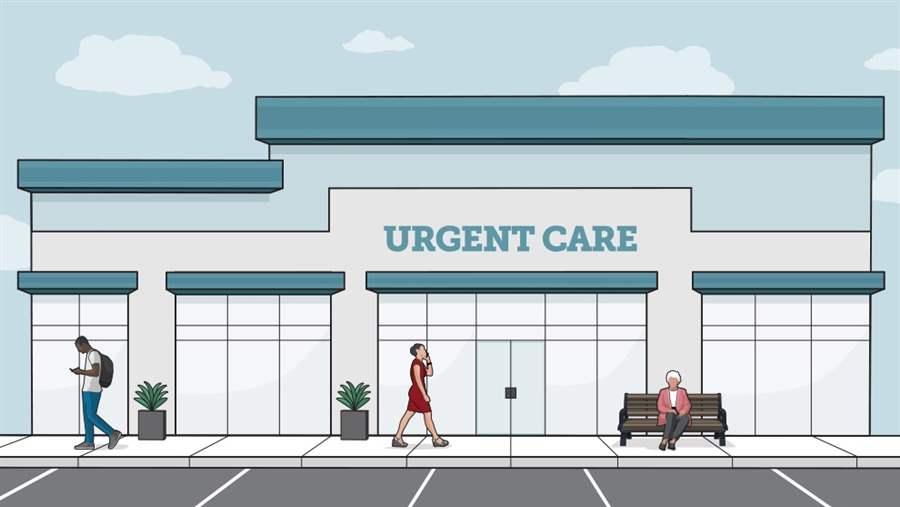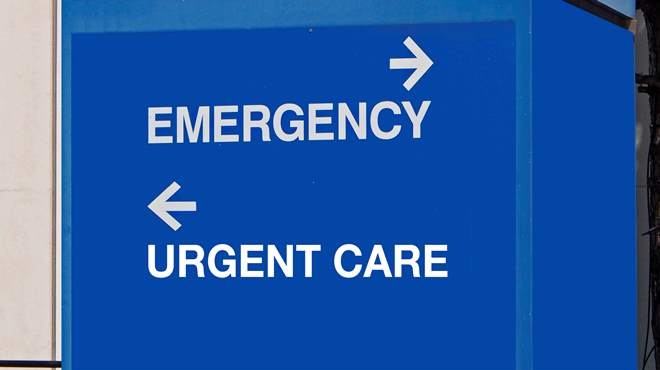Urgent Care vs. Primary Care: Which Is Right for Your Demands?
Comprehending the Value of Urgent Treatment Solutions for Non-Life-Threatening Medical Issues
The relevance of urgent treatment services for non-life-threatening medical concerns can not be overstated, particularly in today's medical care landscape. These facilities use a vital option for clients looking for prompt interest for conditions that need immediate treatment but do not call for a see to the emergency clinic. By understanding the benefits of immediate treatment, such as reduced wait times and cost effectiveness, one can much better appreciate their role in patient wellness administration. The nuances of just how to browse these services efficiently stay to be discovered, elevating questions about their ideal application.
What Is Urgent Care?
Urgent care refers to a group of clinical services made to attend to non-life-threatening conditions that require immediate attention but do not require a visit to the emergency clinic. These facilities give a bridge between main treatment and emergency situation solutions, using accessible health care alternatives for people experiencing severe medical concerns, such as small cracks, sprains, infections, or severe health problems that emerge suddenly.

The extent of services provided by urgent care facilities can vary yet typically consists of treatment for usual disorders like colds, influenza, and allergic reactions, along with minor injuries (urgent care). Additionally, several immediate care centers offer preventative solutions, such as vaccinations and physical examinations, to attend to more comprehensive health requirements. By using a practical choice for immediate medical problems, these facilities play a crucial function in the healthcare continuum, making sure that individuals receive ideal treatment when they require it most
Benefits of Urgent Care Services
Many individuals find that making use of urgent treatment solutions offers substantial benefits over typical emergency room check outs or waiting for a primary care consultation. Urgent treatment facilities generally have shorter wait periods, allowing clients to get timely clinical attention when they require it most.
Another advantage is the prolonged hours of procedure. Several immediate treatment centers are open nights and weekend breaks, suiting people that might not be able to see their medical care doctor throughout routine office hours. This adaptability makes it much easier for patients to access care at their comfort.
Additionally, urgent care services often supply a cost-efficient choice to emergency situation spaces. When seeking therapy for small disorders at urgent care facilities instead than medical facility emergency divisions., patients regularly encounter reduced co-pays and total expenses - urgent care.
Last but not least, urgent care centers are equipped to deal with a range of non-life-threatening issues, providing a wide series of solutions under one roofing. This extensive strategy not just streamlines the therapy process but likewise improves client complete satisfaction by providing efficient and punctual care.
Usual Problems Dealt With
What sorts of non-life-threatening conditions can clients expect to obtain treatment for at urgent care centers? Immediate treatment facilities are equipped to manage a broad array of typical medical concerns that require prompt focus but do not present an instant hazard to life. These facilities generally treat problems such as small fractures, sprains, and stress, supplying important care for injuries that take place during day-to-day activities or sporting activities.
In addition, individuals frequently look for therapy for respiratory infections, including colds, influenza, and bronchitis, where prompt intervention can alleviate symptoms and stop complications. Skin problems such as breakouts, insect bites, and minor burns are likewise generally addressed, as prompt treatment can reduce discomfort and reduce the danger of infection.

Contrasting Urgent Care and Emergency Clinic

One substantial difference lies in wait times; immediate care facilities typically have shorter wait times compared to emergency clinic, which can be clogged with even more vital instances. This efficiency enables patients to get prompt treatment for their conditions.
From an economic point of view, immediate care visits tend to be cheaper than emergency clinic gos to. Insurance coverage copays check my site and out-of-pocket expenditures are frequently reduced at immediate care centers, making them an extra affordable option for non-emergency circumstances.
How to Pick an Urgent Treatment Facility
Choosing the best urgent care center can considerably enhance the high quality of care gotten during a non-life-threatening medical issue. When selecting an urgent treatment center, numerous vital factors need to be taken into consideration.
First, evaluate the center's certification and licensing. Look for centers that are recognized by acknowledged organizations, as this suggests adherence to quality standards. Next off, evaluate the series of solutions offered. Some urgent care facilities specialize in certain locations, while others supply detailed look after various medical issues.
In addition, think about the place and hours of procedure. An easily located center with extensive hours can be vital for timely care. It's additionally a good idea to inspect the center's wait times and individual reviews, which can offer insights into the total client experience.
Verdict
Finally, immediate care solutions play a crucial role in attending to non-life-threatening medical issues successfully. By using instant focus for various problems, these centers boost person accessibility to prompt care while decreasing the strain on emergency situation areas. The advantages of urgent treatment, consisting of extended hours and reduced expenses, make them a beneficial alternative for people looking for punctual therapy. Inevitably, comprehending the internet relevance of urgent care centers adds to boosted medical care management and client contentment.
Lots of people find that using urgent treatment services supplies considerable benefits over traditional emergency space brows through or waiting for a primary treatment weblink appointment. Lots of immediate treatment facilities are open nights and weekends, fitting individuals who might not be able to see their key care doctor during routine workplace hours. Urgent treatment facilities are created to resolve non-life-threatening problems, such as minor fractures, infections, and illnesses, providing a convenient choice to emergency spaces for those in need of prompt treatment. Some immediate care centers specialize in certain locations, while others offer thorough treatment for various clinical issues.